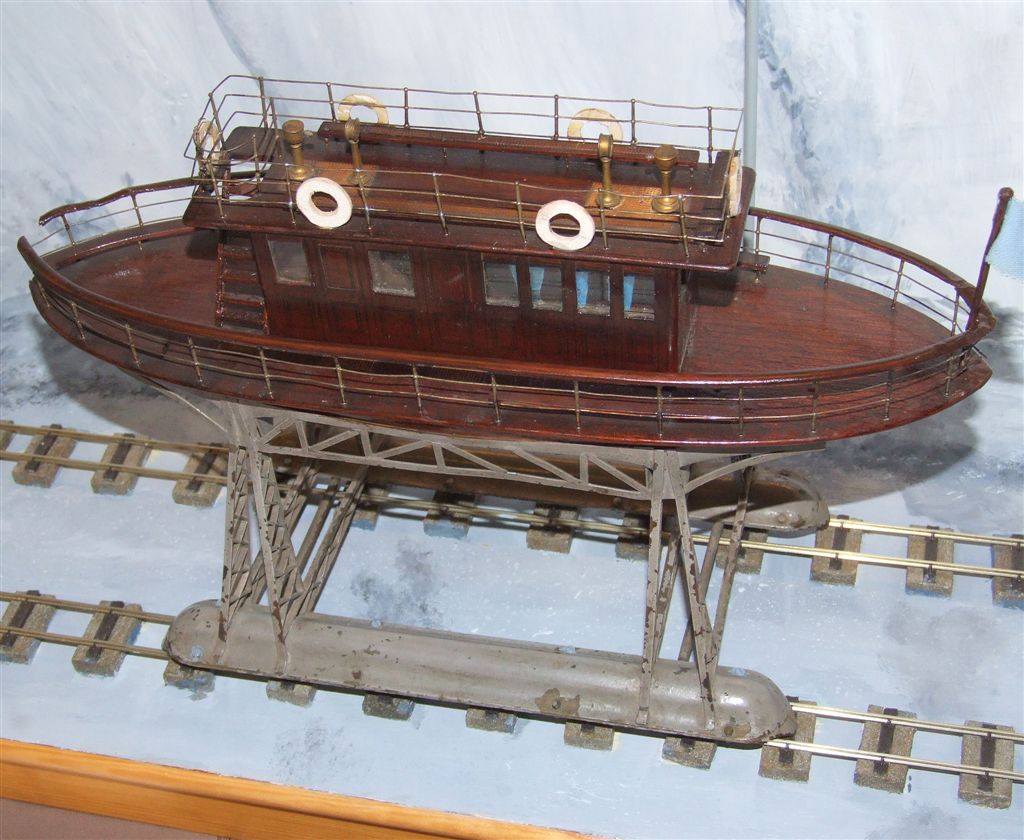Magnus Volk on:
[Wikipedia]
[Google]
[Amazon]
Magnus Volk FII (1851–1937) was a British-German inventor and pioneering


Magnus Volk
in ''My Brighton and Hove'' site * of 'Daddy Longlegs' seashore electric railway {{DEFAULTSORT:Volk, Magnus 1851 births 1937 deaths British electrical engineers British railway civil engineers British railway pioneers Engineers from Brighton
electrical engineer
Electrical engineering is an engineering discipline concerned with the study, design, and application of equipment, devices, and systems that use electricity, electronics, and electromagnetism. It emerged as an identifiable occupation in the l ...
.
He is most notable for having built Volk's Electric Railway, the world's oldest operating electric railway
Railway electrification is the use of electric power for the propulsion of rail transport. Electric railways use either electric locomotives (hauling passengers or freight in separate cars), electric multiple units ( passenger cars with their own ...
.
Career
Aside from the Volk's Electric Railway, he also built the unique but short-lived Brighton and Rottingdean Seashore Electric Railway, together with its unusual ''Daddy Long Legs'' vehicle. He also built another short-lived line, similar to the VER, in the pleasure grounds at Aston Hall,Birmingham
Birmingham ( ) is a City status in the United Kingdom, city and metropolitan borough in the metropolitan county of West Midlands (county), West Midlands, within the wider West Midlands (region), West Midlands region, in England. It is the Lis ...
.
In 1887 he attracted attention in Brighton by building a three-wheeled electric carriage powered by an Immisch motor. In 1888 he built another electric car
An electric car or electric vehicle (EV) is a passenger car, passenger automobile that is propelled by an electric motor, electric traction motor, using electrical energy as the primary source of propulsion. The term normally refers to a p ...
, this time a four-wheeled carriage which was made to the order of the Sultan of the Ottoman Empire
The sultans of the Ottoman Empire (), who were all members of the Ottoman dynasty (House of Osman), ruled over the Boundaries between the continents, transcontinental empire from its perceived inception in 1299 to Dissolution of the Ottoman Em ...
, for which he was awarded an Order of Osmali, presented to Magnus by the Sultan in person whilst in Constantinople
Constantinople (#Names of Constantinople, see other names) was a historical city located on the Bosporus that served as the capital of the Roman Empire, Roman, Byzantine Empire, Byzantine, Latin Empire, Latin, and Ottoman Empire, Ottoman empire ...
.Volk, Conrad. ''Magnus Volk of Brighton''. (London: Phillimore, 1971).
Other projects of Magnus included inventing a fire-alarm system, early successful attempts at electricity in the home, telecommunications and installing electricity to the Royal Pavilion
The Royal Pavilion (also known as the Brighton Pavilion) and surrounding gardens is a Grade I listed former royal residence located in Brighton, England. Beginning in 1787, it was built in three stages as a seaside retreat for George, Prince o ...
for the first time.


Personal life
Magnus Volk was the son of a German clockmaker and was born on 19 October 1851 inBrighton
Brighton ( ) is a seaside resort in the city status in the United Kingdom, city of Brighton and Hove, East Sussex, England, south of London.
Archaeological evidence of settlement in the area dates back to the Bronze Age Britain, Bronze Age, R ...
. He lived at 38 Dyke Road in Brighton. On 8 April 1879, he married Anna Banfield in Burgess Hill
Burgess Hill () is a town and civil parish in West Sussex, England, close to the border with East Sussex, on the edge of the South Downs National Park, south of London, north of Brighton and Hove, and northeast of the county town, Chichester. ...
. George Herbert Volk, his second son, is noted as a pioneer builder of seaplane
A seaplane is a powered fixed-wing aircraft capable of takeoff, taking off and water landing, landing (alighting) on water.Gunston, "The Cambridge Aerospace Dictionary", 2009. Seaplanes are usually divided into two categories based on their tech ...
s, whilst another son, Conrad Volk, wrote a biography of his father. His descendants include the musician Joe Volk and the journalist Scott Campbell.
Magnus Volk died in Brighton on 20 May 1937, and is buried at St Wulfran's churchyard in Ovingdean near Brighton.
References
Bibliography
* Conrad Volk: ''Magnus Volk of Brighton''. London & Chichester: Phillimore, 1971.External links
Magnus Volk
in ''My Brighton and Hove'' site * of 'Daddy Longlegs' seashore electric railway {{DEFAULTSORT:Volk, Magnus 1851 births 1937 deaths British electrical engineers British railway civil engineers British railway pioneers Engineers from Brighton